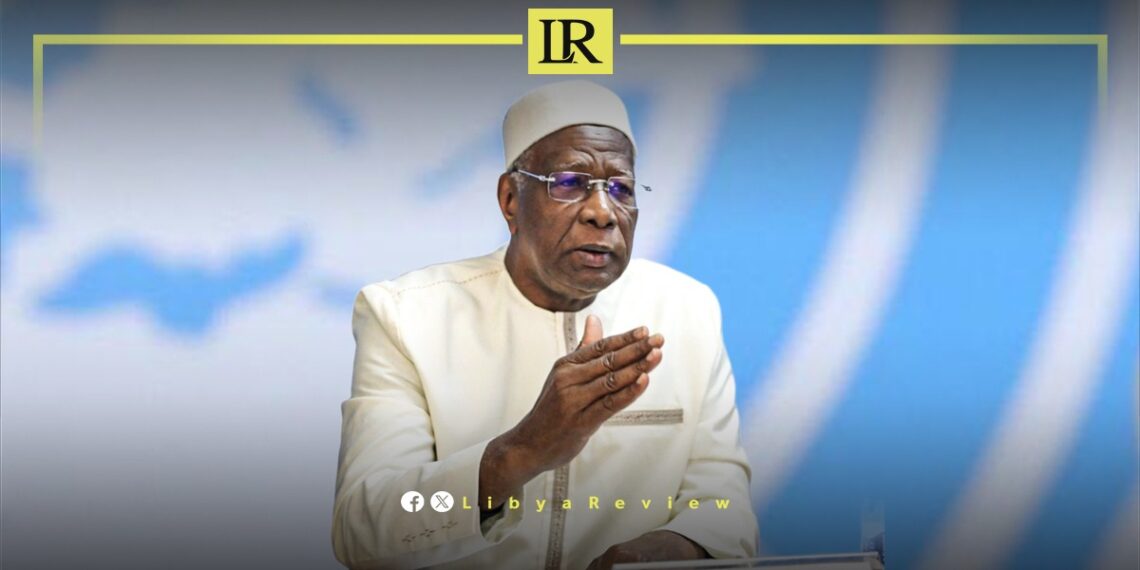United Nations (UN) Envoy, Aboulaye Bathily, commended the meeting of the members of the Libyan House of Representatives (HoR) and the High Council of State (HCS) in Tunis but clarified that it is not an alternative to the pentapartite dialogue he previously advocated for.
In his address to the attendees in Tunis, Bathily stated that the meeting does not resolve the contentious issues hindering the elections. He cautioned against reproducing solutions unacceptable to all parties.
“This gathering cannot replace a broader dialogue with more extensive participation and a more comprehensive agenda,” he remarked.
Bathily emphasised his non-support for any course of action that could lead to further loss of life, underlining the need to address all issues that prevented the 2021 elections from taking place.
The UN Envoy continued, “focus should not be solely on one issue at the expense of others,” calling for genuine negotiations and a political settlement involving all key parties.
Bathily urged the main institutional parties to engage in dialogue in good faith and without preconditions. He encouraged members of both councils to unite efforts, overcome political deadlock, and build consensus.
The UN Envoy denied favoring any political side over another, asserting that his support is directed towards the Libyan people. “You must restrain this relentless march towards the abyss and resort to reason and wisdom to save Libya,” he added.
Libya has been in chaos since a NATO-backed uprising toppled longtime leader Moammar Gaddafi in 2011. The county has for years been split between rival administrations.
Libya’s economy, heavily reliant on oil, has suffered due to the ongoing conflict. The instability has led to fluctuations in oil production and prices, impacting the global oil market and Libya’s economy.
The conflict has led to a significant humanitarian crisis in Libya, with thousands of people killed, and many more displaced. Migrants and refugees using Libya as a transit point to Europe have also faced dire conditions.


